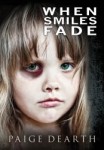

April 21 – 27: “Do you enjoy reading books out of season?”
 Reading a Christmas story in July? Who does that? This week ITW Members Mark Alpert, Colin Campbell, Paige Dearth, Tim Waggoner and Nancy J. Cohen discuss reading books our of season.
Reading a Christmas story in July? Who does that? This week ITW Members Mark Alpert, Colin Campbell, Paige Dearth, Tim Waggoner and Nancy J. Cohen discuss reading books our of season.
~~~~~
 Ex-policeman. Ex-soldier. International tennis player. And full-time crime novelist. Colin Campbell is a retired police officer in West Yorkshire, having tackled crime in one of the UK’s busiest cities for 30 years. He is the author of UK crime novels, Blue Knight White Cross and Northern Ex, and US thrillers Jamaica Plain and Montecito Heights featuring rogue Yorkshire cop Jim Grant. He counts Lee Child and Matt Hilton among his fans.
Ex-policeman. Ex-soldier. International tennis player. And full-time crime novelist. Colin Campbell is a retired police officer in West Yorkshire, having tackled crime in one of the UK’s busiest cities for 30 years. He is the author of UK crime novels, Blue Knight White Cross and Northern Ex, and US thrillers Jamaica Plain and Montecito Heights featuring rogue Yorkshire cop Jim Grant. He counts Lee Child and Matt Hilton among his fans.
 Paige Dearth was a victim of child rape and spent her early years yearning desperately for a better life. Living through the fear and isolation that marked her youth, she found a way of coping with the trauma of her past and the angst that scarred her present: she developed the ability to dream up stories grounded in reality that would prove cathartic for her and provide her with a creative outlet. Paige’s novels are a fine balance between what lives on in her imagination and the evil that lurks in the real world.
Paige Dearth was a victim of child rape and spent her early years yearning desperately for a better life. Living through the fear and isolation that marked her youth, she found a way of coping with the trauma of her past and the angst that scarred her present: she developed the ability to dream up stories grounded in reality that would prove cathartic for her and provide her with a creative outlet. Paige’s novels are a fine balance between what lives on in her imagination and the evil that lurks in the real world.
 Shirley Jackson Award-nominated author Tim Waggoner has published over thirty novels and three short story collections of dark fiction. He teaches creative writing at Sinclair Community College and in Seton Hill University’s Master of Fine Arts in Writing Popular Fiction program.
Shirley Jackson Award-nominated author Tim Waggoner has published over thirty novels and three short story collections of dark fiction. He teaches creative writing at Sinclair Community College and in Seton Hill University’s Master of Fine Arts in Writing Popular Fiction program.
 Nancy J. Cohen writes the Bad Hair Day mystery series featuring hairdresser Marla Shore. Several of these titles have made the IMBA bestseller list. Nancy is also the author of Writing the Cozy Mystery, a valuable instructional guide for writers on how to write a winning whodunit. A featured speaker at conferences, libraries, and community events, Nancy is listed in Contemporary Authors, Poets & Writers, and Who’s Who in U.S. Writers, Editors, & Poets.
Nancy J. Cohen writes the Bad Hair Day mystery series featuring hairdresser Marla Shore. Several of these titles have made the IMBA bestseller list. Nancy is also the author of Writing the Cozy Mystery, a valuable instructional guide for writers on how to write a winning whodunit. A featured speaker at conferences, libraries, and community events, Nancy is listed in Contemporary Authors, Poets & Writers, and Who’s Who in U.S. Writers, Editors, & Poets.
 Mark Alpert is author of The Furies, a new thriller from Thomas Dunne Books/St. Martin’s Press. A contributing editor at Scientific American, he specializes in weaving real science into his novels. His earlier thrillers — Final Theory, The Omega Theory and Extinction — have been published in twenty-three languages. He lives in Manhattan with his wife and two children and is a proud member of Scientific American’s softball team, the Big Bangers.
Mark Alpert is author of The Furies, a new thriller from Thomas Dunne Books/St. Martin’s Press. A contributing editor at Scientific American, he specializes in weaving real science into his novels. His earlier thrillers — Final Theory, The Omega Theory and Extinction — have been published in twenty-three languages. He lives in Manhattan with his wife and two children and is a proud member of Scientific American’s softball team, the Big Bangers.
- LAST GIRL MISSING with K.L. Murphy - July 25, 2024
- CHILD OF DUST with Yigal Zur - July 25, 2024
- THE RAVENWOOD CONSPIRACY with Michael Siverling - July 19, 2024
